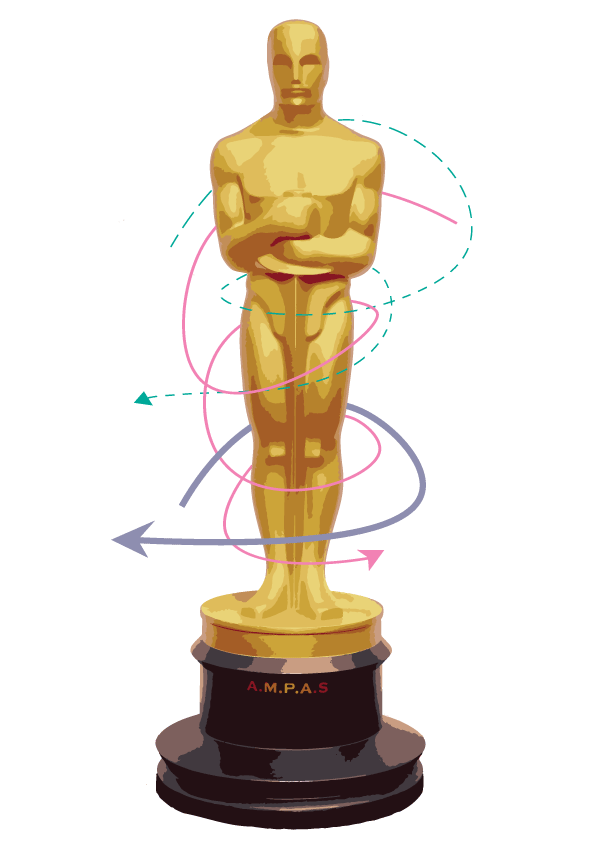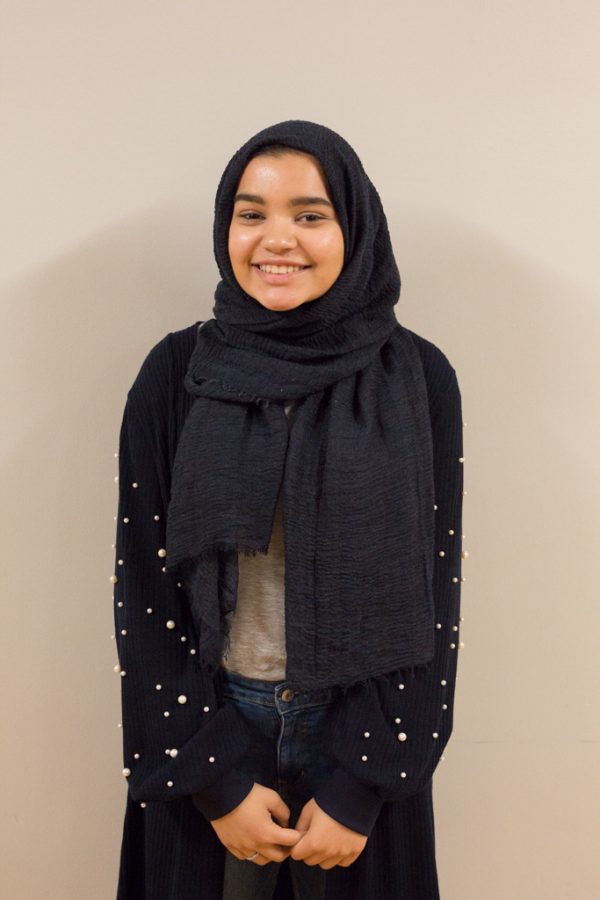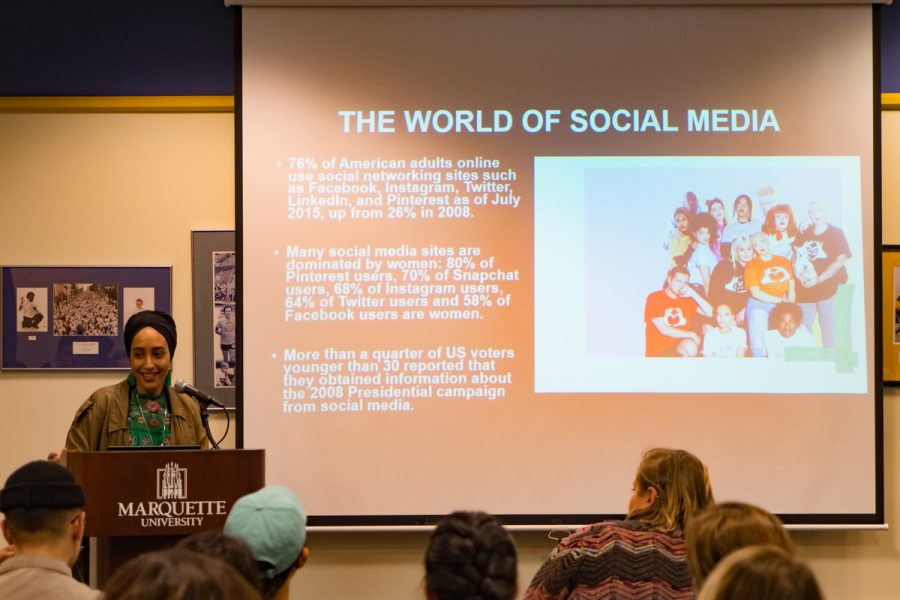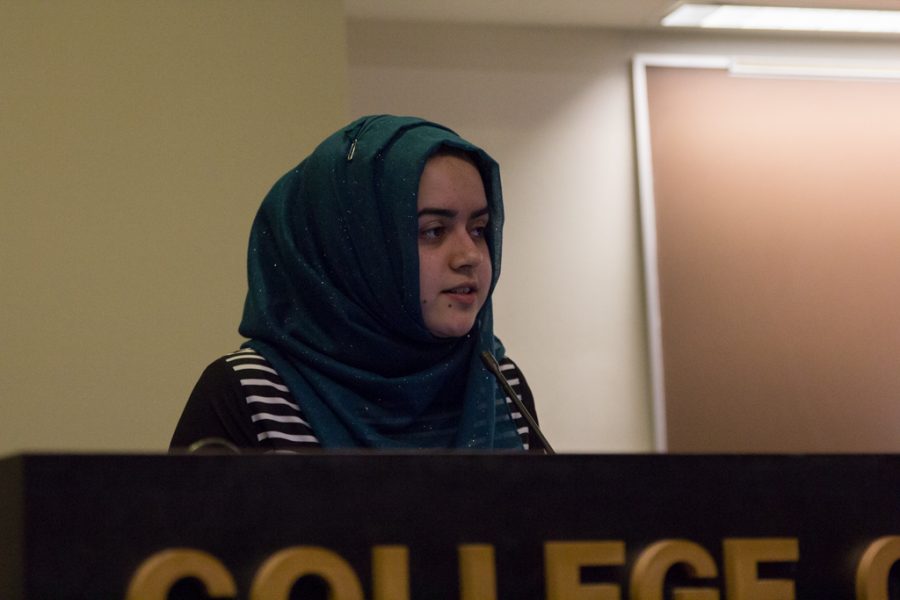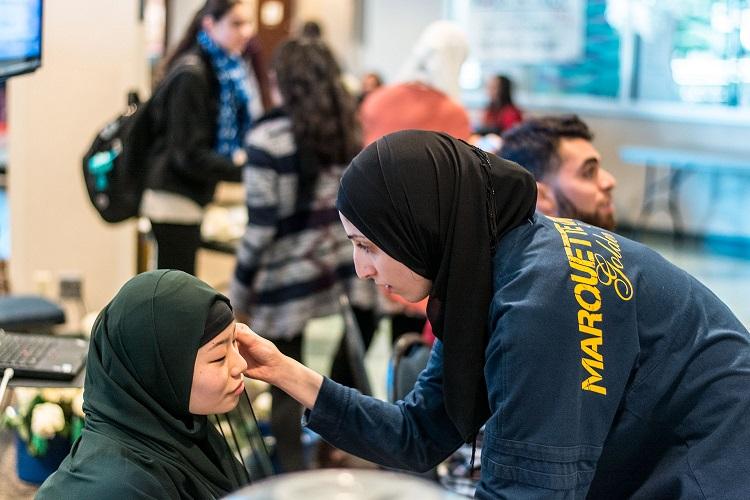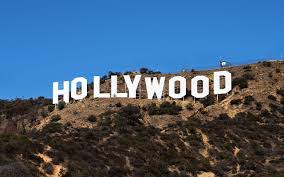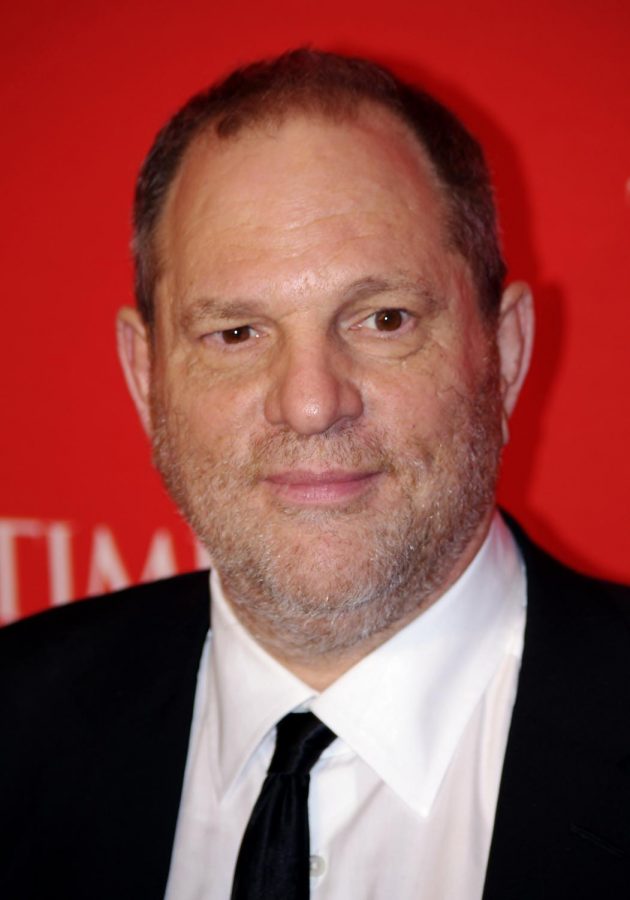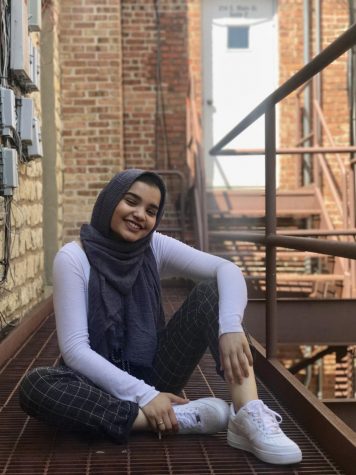I can tell you that at exactly 12 minutes and 53 seconds, a hijabi (a person who wears a hijab), was visible in the back of Peter Parker’s chemistry class in “Spider-Man Homecoming.” It might have been one of my top three favorite moments in any Marvel movie. I immediately paused the film, took a snapchat and sent it to my other hijabi friends.
This girl did not have any lines and did not even move throughout the 3-minute scene. Nevertheless, I was still so proud and ecstatic that a Muslim girl was sitting behind Spider-Man. That tiny act from the producers of the movie allowed me and my other Muslim friends to love the movie even more than we already did.
A little while ago, a video went viral on Twitter of a group of African Americans admiring the “Black Panther” movie poster. They reached an epiphany that this empowering feeling they received from merely looking at this movie poster is the same feeling that white people get to have all the time. Minorities, especially African Americans, are on the edge of their seats waiting for this movie because they will finally get what they have never before received from Hollywood.
We have never had the privilege of watching a big-franchise film filled with strong minorities. For once, minorities are not in an inferior role. They aren’t being portrayed as maids, slaves and lower-class citizens, or placed as a token black character to make it seem like the movie is diverse. Not all white people can understand this excitement because they’ve always been able to relate to characters on screen.
Some might not see the lack of minority representation in the movie industry as a priority because of other problems present in our country. There will always be a variety of political and economic concerns, but if Americans saw a diverse cast of strong characters in the entertainment they watched, I strongly believe that their outlook on many concerns would be shifted.
In political debates, conservative white people see minorities as different than them and do not always seem to understand their value as human beings. If Hollywood regularly portrayed a strong image of minorities, white people would think of African Americans, Asians and Arabs as normal people with hardships just like their own.
I have not had the opportunity to observe and connect with any sort of hijabi character through any type of mainstream media. There are multiple hijabis who have chosen to be heard and seen through their YouTube channels, but online bloggers are not always the type of entertainment I want. I do not want to be forced to stick to YouTube to watch someone who looks like me. I literally have to go into the depths of the internet and find sketchy links to an online Norwegian series in order to watch a strong Muslim girl who is integral to a story line.
This lack of minority characters for a child truly affects their perception of themselves. I knew I was always different because my family and I never looked the same as the white families I would watch on Disney Channel. When I was a child, I watched kids on some show eating bacon for breakfast. I had never seen bacon before, so I asked my mother what it was. My mother explained that bacon came from pigs, and from then on I knew I was not like my peers because I did not eat bacon for breakfast.
The idea of what one eats for breakfast seems like such a small notion, but it relates to an idea much larger than that. My younger cousins’ faces light up when they watch “Moana.” They might not realize why, subconsciously they feel liberated and more confident because they watch a little girl fulfill amazing duties.
It is sad that until recently, the entertainment industry has not been able to keep up with the changing and more diverse times.



